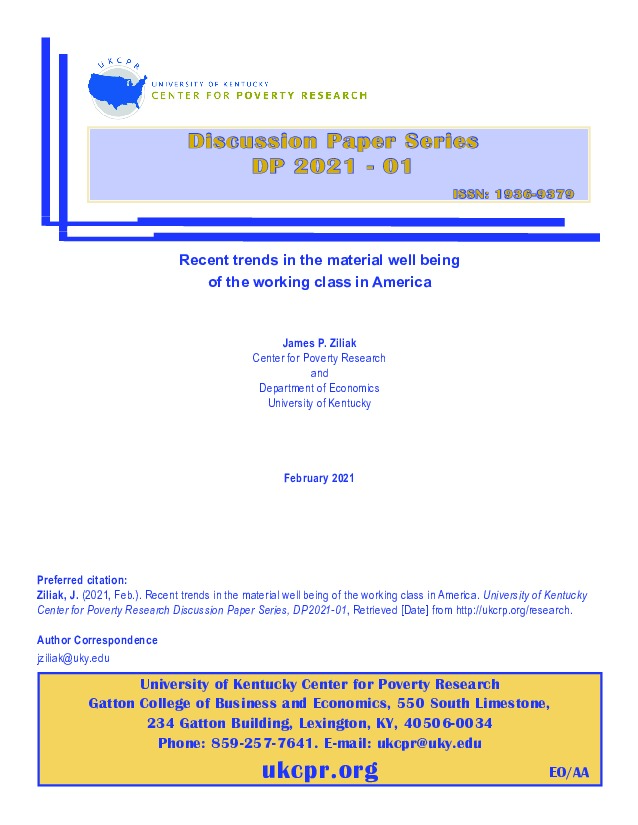I examine trends in the material well-being of working-class households using data from the Current Population Survey in the two decades surrounding the Great Recession. Average earnings, homeownership, and insurance coverage all fell, while absolute poverty and food insecurity accelerated leading up to the Great Recession. After-tax incomes were stagnant for much of the distribution across and within skill groups. On the contrary, the economic hemorrhaging either abated or reversed in the decade after the Great Recession, especially for the least skilled and for households headed by a Hispanic person. This includes robust earnings growth resulting in falling lower-tail earnings inequality, absolute poverty, and food insecurity, coupled with increased insurance coverage and a modest rebound in after-tax incomes. As many of these recent advances likely stalled with the onset of the Covid-19 Pandemic, I discuss various policy options.
Research
InequalityPDF Thumbnail
